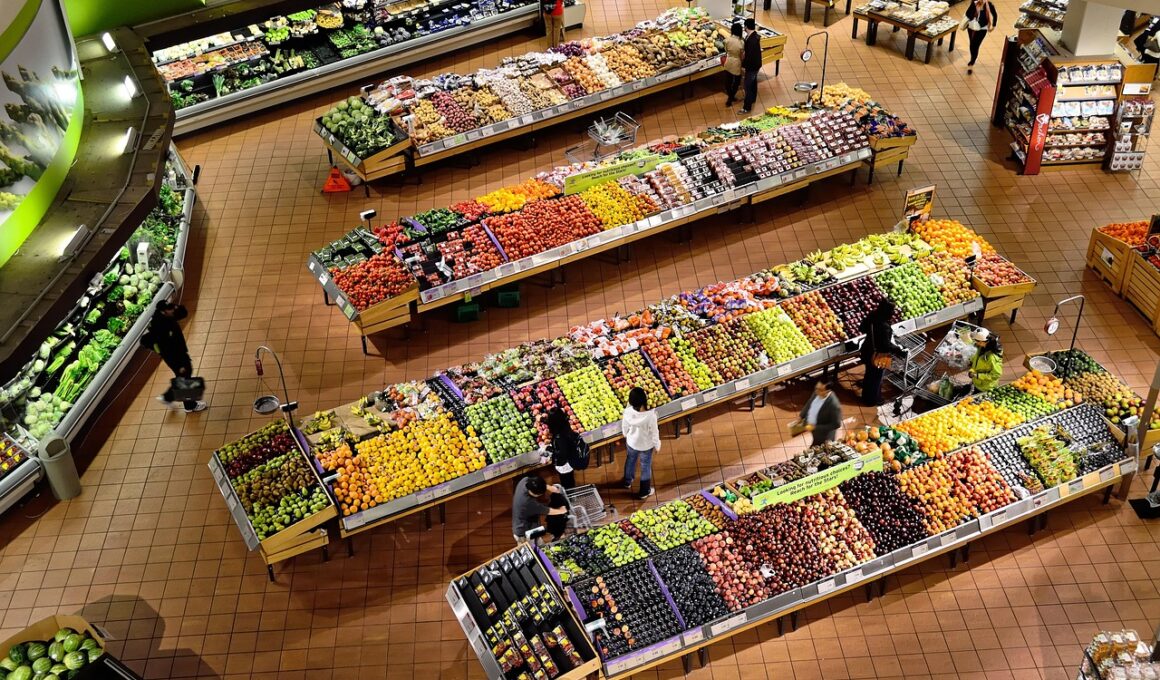How Food Lion Became a Franchise Supermarket Success
The journey of Food Lion, a supermarket chain, started in 1957 in Salisbury, North Carolina. From humble beginnings, the company grew steadily by focusing on customer satisfaction and affordable prices. As competition in the grocery market intensified, Food Lion honed its business model to stand out. It introduced innovations such as a scanner system for checking out, which improved efficiency significantly. In the 1980s, Food Lion began its franchise initiative, which allowed local entrepreneurs to operate under the Food Lion brand. This move was strategic, enabling the company to expand rapidly without incurring massive capital expenses. With more than 1,000 locations across multiple states, Food Lion became a household name. The focus remained on providing fresh produce and excellent service. Additionally, the franchise model fueled local ownership, which helped each store cater to particular community needs. Presently, Food Lion operates over 1,100 stores with more than 25,000 employees. This growth story showcases how a strong franchise model, combined with real market understanding, can lead to sustained success in the highly competitive retail landscape.
The Franchise Model: Key to Growth
Food Lion’s franchise model played a crucial role in its growth and brand recognition. By partnering with local entrepreneurs, the company was able to expand its presence quickly. These franchisees are often better positioned to understand their community’s needs. Consequently, they can tailor offerings to appeal to local tastes and preferences. The independence of franchisees allows for quicker decision-making and locally relevant marketing strategies. Food Lion supports its franchise partners with comprehensive training programs designed to ensure operational efficiency and adherence to brand standards. Each franchisee receives guidance on inventory management, customer service, and staff training. This holistic approach contributes to cohesive branding while allowing flexibility. Additionally, the shared investment model enables Food Lion to grow without excessive expenditure on corporate-owned stores. Many franchisees have become successful entrepreneurs, generating jobs and enhancing local economies. The franchise model, therefore, benefits all parties involved. The success of Food Lion demonstrates the effectiveness of franchising in retail. It allows significant scalability while maintaining a community-oriented approach. As a result, Food Lion continues to thrive in a competitive industry, showcasing a model worth emulating by other businesses.
Over the years, Food Lion has focused on innovative marketing strategies to enhance its brand visibility. They have frequently employed promotional campaigns that resonate well with local communities. Seasonal promotions, loyalty programs, and unique community events have successfully attracted customers. These marketing strategies encourage customer retention through personalized experiences. Additionally, Food Lion emphasizes its commitment to providing quality products. By sourcing locally whenever possible, the supermarket emphasizes fresh, high-quality food. This practice not only supports local farmers but also reinforces the brand’s dedication to community welfare. Sustainability initiatives have also become part of their marketing narrative. Their focus on reducing food waste and sustainable sourcing has helped them connect with environmentally conscious consumers. The store’s community outreach efforts further amplify their reputation as a socially responsible company. By actively engaging with schools and local organizations, Food Lion fosters goodwill and loyalty among shoppers. These marketing approaches highlight how a grocery chain can build lasting relationships with its patrons. They also underline the importance of marketing in solidifying its competitive position in the saturated supermarket industry.
Technology as a Driving Force
Technology has been pivotal in Food Lion’s operational success. Implementing cutting-edge systems has optimized their inventory management and shopping experience. Their decision to introduce a customer-friendly app allows for quick online ordering, pickup, and delivery services. This ease of access has significantly improved overall customer satisfaction. Additionally, Food Lion’s incorporation of self-checkout systems enhances efficiency while reducing checkout wait times. Investments in data analytics have empowered the chain to better understand consumer preferences. By analyzing purchasing patterns, Food Lion can tailor its inventory accordingly. This proactive approach ensures they stock products that meet community demands. Furthermore, the supermarket chain has leveraged social media to build brand awareness and customer engagement. Enhanced communication channels allow for immediate feedback, helping Food Lion address concerns effectively. Incorporating technology in various aspects of operations exemplifies how supermarkets can stay current. It also demonstrates Food Lion’s commitment to the evolving needs of its customers. Their effective use of technology not only boosts profitability but also improves the overall shopping experience.
As a supermarket chain dedicated to quality, Food Lion places a strong emphasis on customer service. They understand that a satisfied customer is more likely to become a loyal shopper. To achieve this, Food Lion has established a robust training program for all employees. Staff members learn the importance of engaging with customers while providing prompt service. This focus on training elevates the overall in-store experience for shoppers. Employees are empowered to address customer concerns and provide solutions quickly. Moreover, Food Lion actively seeks customer feedback to assess satisfaction levels. The insights gained from surveys and reviews help the chain improve services continually. Furthermore, they regularly recognize employees who provide exceptional customer service, fostering a culture of excellence. Recognizing staff efforts contributes to a motivated workforce, ultimately enhancing service delivery. The priorities set by management underscore Food Lion’s commitment to creating a positive shopping environment. This dedication to service differentiates them from competitors. It builds a strong customer base that appreciates not only quality products but also exemplary service.
Community Engagement and Corporate Responsibility
Food Lion endorses a culture of community engagement and corporate responsibility. The chain believes in giving back to the communities it serves. Various initiatives, such as food drives and partnerships with local charities, illustrate this commitment. Through collaborations, Food Lion ensures that food reaches those in need while fostering goodwill. They also encourage franchisees to participate in community service events, enhancing local ties. Each franchise location is often involved in local activities, promoting a sense of belonging among shoppers. The commitment to sustainability includes efforts to reduce its carbon footprint. Initiatives like waste reduction and energy-efficient practices reflect their commitment to the environment. Food Lion’s corporate responsibility initiatives are not just good for brand image; they also resonate deeply with customers. Consumers increasingly prefer to support companies that make a positive social impact. Food Lion’s engagement in community efforts directly influences its growth. A strong sense of responsibility frequently translates into customer loyalty, making it a pillar of their strategic business operations. Consequently, these initiatives solidify their standing as a trusted grocery retailer.
The future of Food Lion appears bright, given its resilience and adaptability to market changes. Sustaining growth in today’s competitive supermarket landscape requires constant innovation. Food Lion embraces emerging trends such as health-conscious eating and organic products. By expanding its selection of healthy options, the chain caters to a growing demographic that prioritizes nutrition. Additionally, continued investments in technology ensure they maintain operational efficiency amid rising consumer expectations. The future also entails further strengthening community ties and sustainability efforts. As consumers continue to demand transparency and ethical practices, Food Lion strives to lead by example. They aim to balance profitability with social responsibility effectively. Their commitment to employee development remains a crucial factor in their ongoing success. As Food Lion enhances its workforce capabilities, it prepares for the challenges of the future. By maintaining a focus on the franchise model while embracing innovations, Food Lion sets a standard in the supermarket industry. Ultimately, the blend of community involvement, technological integration, and customer-centric values positions Food Lion for sustained success.


